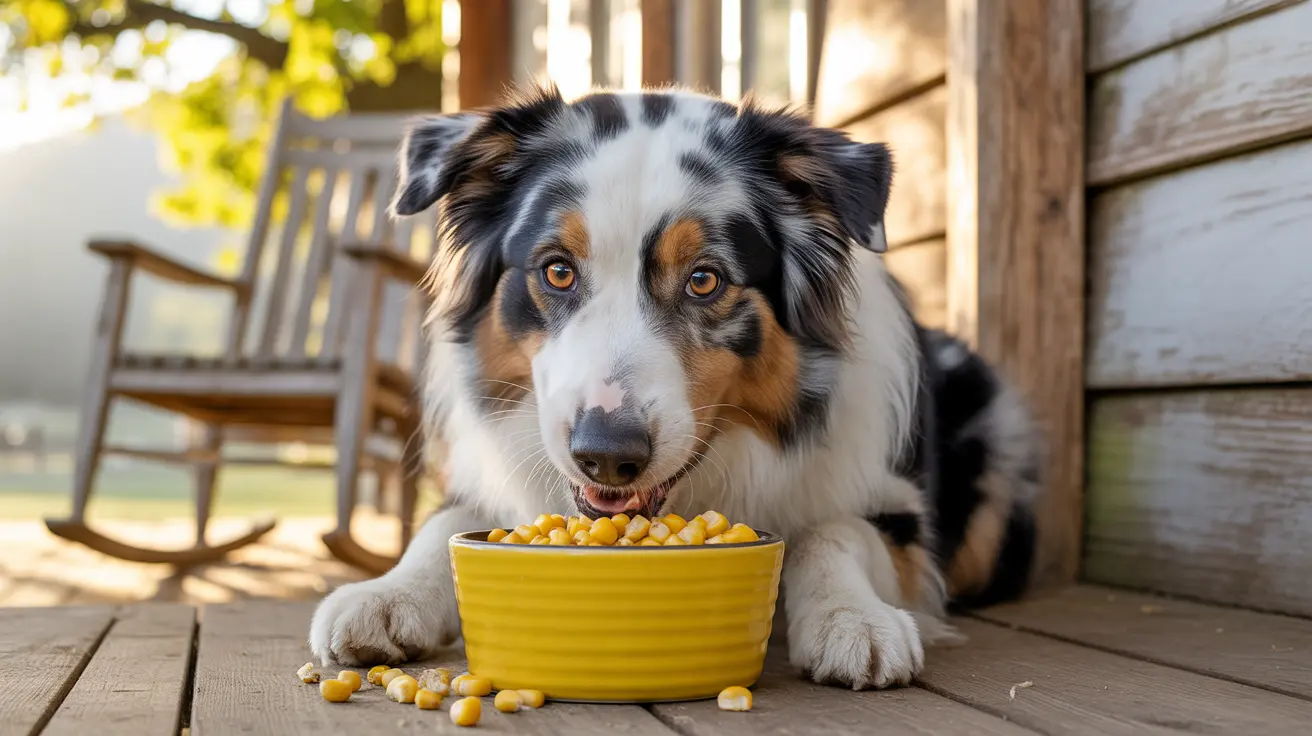If you've ever wondered whether it's safe to share corn with your furry friend, you're not alone. As a common ingredient in both human meals and commercial dog food, corn often raises questions among pet parents about its safety and nutritional value for dogs.
The good news is that dogs can safely eat corn when it's properly prepared and served in moderation. This comprehensive guide will explore everything you need to know about feeding corn to your canine companion, from its nutritional benefits to important safety precautions.
Nutritional Benefits of Corn for Dogs
Corn offers several valuable nutrients that can contribute to your dog's overall health:
- Protein (2.37g per half cup) for muscle maintenance
- Carbohydrates (13.55g per half cup) for energy
- Dietary fiber (1.45g per half cup) for digestive health
- Essential vitamins (C, B, E, and K)
- Important minerals (magnesium, potassium, phosphorus)
- Antioxidants (lutein and zeaxanthin) for eye health
Safe Ways to Serve Corn to Your Dog
When feeding corn to your dog, proper preparation is crucial for safety:
- Remove kernels completely from the cob
- Serve plain, without butter, salt, or seasonings
- Cook kernels thoroughly or serve fresh
- Start with small portions to test tolerance
- Monitor your dog while eating corn
Important Safety Precautions
While corn can be a healthy treat, certain precautions are essential:
Never Feed the Cob
Corn cobs pose serious risks including:
- Choking hazards
- Intestinal blockages
- Potential need for emergency surgery
Watch Portion Sizes
Limit corn to occasional treats, accounting for no more than 10% of your dog's daily caloric intake. Excessive corn consumption can lead to:
- Weight gain
- Digestive upset
- Gas and bloating
Understanding Corn Allergies in Dogs
While relatively rare (affecting only about 4% of dogs), corn allergies can occur. Watch for these symptoms:
- Itching and skin irritation
- Digestive issues
- Excessive scratching
- Ear infections
- Chronic diarrhea or vomiting
Corn in Commercial Dog Food
Many commercial dog foods include corn because:
- It's a digestible source of carbohydrates
- Provides essential nutrients
- Offers sustainable energy
- Contains valuable antioxidants
Frequently Asked Questions
Is corn safe for dogs to eat, and what are the health benefits?
Yes, corn is safe for dogs when properly prepared and served in moderation. It provides protein, carbohydrates, fiber, vitamins, and minerals. The antioxidants in corn support eye health and overall cellular function.
How should I prepare and serve corn to my dog to ensure it's safe?
Remove kernels from the cob, serve plain without seasonings or butter, and ensure portions are appropriate for your dog's size. You can serve it cooked, raw, or frozen as an occasional treat.
Why is corn on the cob dangerous for dogs, and what should I do if my dog eats a cob?
Corn cobs are indigestible and can cause serious intestinal blockages or choking. If your dog eats a cob, contact your veterinarian immediately and watch for signs of distress, vomiting, or changes in bathroom habits.
Can dogs be allergic to corn, and what are the signs of a corn allergy in dogs?
Yes, though corn allergies are relatively rare. Signs include itching, skin irritation, digestive issues, and chronic ear infections. If you suspect an allergy, consult your veterinarian for proper diagnosis.
Is corn a good ingredient in commercial dog food, and why is it included in many brands?
Corn is a valuable ingredient in dog food, providing digestible carbohydrates, protein, and essential nutrients. It's included because it's nutritious, cost-effective, and well-tolerated by most dogs.
Conclusion
When served properly, corn can be a safe and nutritious addition to your dog's diet. Remember to always remove kernels from the cob, serve in moderation, and monitor your pet for any adverse reactions. If you have specific concerns about feeding corn to your dog, especially if they have existing health conditions, consult with your veterinarian for personalized advice.






